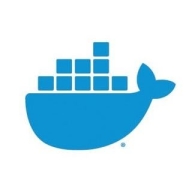

Amazon EKS and Docker compete in the cloud computing and containerization category. Amazon EKS appears to have the upper hand due to its integration with AWS services and the abstraction capabilities of Fargate, although Docker shines in simplicity and flexibility.
Features: Amazon EKS provides robust orchestration with Kubernetes, facilitating the deployment of microservices, scalability, and ease of management. The standout is Fargate, simplifying deployments by abstracting cluster complexities. It integrates with AWS for auto-scaling, monitoring, and security. Docker excels in containerization, offering simplicity, flexibility, comprehensive security, and ease of use with autonomy and portability across environments.
Room for Improvement: Amazon EKS could improve security integrations and a more intuitive user experience. Its reliance on cloud tools and frequent upgrades pose challenges. Docker needs better stability and clearer documentation. Its firewall setup is complex, and the UI could be improved for better usability.
Ease of Deployment and Customer Service: Amazon EKS excels in public and hybrid cloud deployments with reliable AWS support though it can be complex to configure. Docker supports various deployment models including on-premises and hybrid cloud, relying on community support. Its documentation often suffices for reducing technical support needs.
Pricing and ROI: Amazon EKS is cost-effective but pricey compared to GKE, with worthwhile ROI potential requiring careful cost management. Docker, being open-source, is cost-efficient but its enterprise version demands licensing. Docker’s straightforward pricing appeals to those preferring open-source with optional enterprise support.
Initially, not having them resulted in an unoptimized solution. However, with these tools in place, we witnessed a reduction of costs by approximately a third—if it was $100 beforehand, we brought costs down to $25.
We have cost explorer available, and a bill forecast based on usage allows us to determine whether resources are underutilized or overutilized.
It's a fast deployment, with very good documentation, and it's really helpful.
We didn't need to manage etcd and those control management tools; it's totally handled from the AWS side, making it very beneficial.
I believe there should be a recovery solution available for at least a few hours so that we might bring it back.
They will set up a call, guide us, or provide solutions regarding integration with AWS or Amazon EKS.
The ability to scale based on requirements by deploying additional containers is a strong point for Kubernetes.
This allows us to scale our applications or APIs as needed, offering reliability through the automation of scaling processes.
If any node is not ready, the cluster autoscaler ensures that it is removed from the AWS auto-scaling group and replaces it with a new node in the cluster.
Previously, only one or two applications could run on a server, but now it can handle hundreds of applications, scaling up or down as needed.
There are multiple availability zones in the regions, meaning no single point of failure.
The control plane is quite stable in Amazon EKS, and I find it to be 100% available.
We haven't faced any challenges, and it consistently delivers on its committed SLA.
Simplifying these will enable more people, not just those with strong foundational knowledge, to work effectively with these services.
Amazon EKS can be improved by having the maintenance of Kubernetes versions managed better, as everything is handled by the Kubernetes team and possibly a separate team at AWS.
Adding logging would be a valuable improvement.
Docker is a time-tested, proven solution with industry-wide applications.
In terms of communication between services, perhaps the configuration within networks between containers could be improved.
The EKS service itself is free, but you will incur costs for the VMs used as nodes in that cluster.
If you want to monitor costs effectively, applying separate tools and acting accordingly in advance is essential.
The pricing structure is beneficial for large companies who pay for what they use, but it is not affordable for startups.
I consider Docker's pricing to be affordable.
The most beneficial aspect of Amazon EKS is that it helps manage the Kubernetes master node, so I don't need to maintain the master node, including tasks like upgrading.
The main benefits that I received from using Amazon EKS are that it is a managed cluster and offers simplicity.
By default, if you just install Amazon EKS, you can deploy your application, but to have it enterprise-ready, you have to configure a number of other things that will boost productivity.
It allows the software to run on various machines without compatibility issues, saving a lot of time.
The most valuable feature is the simple containerization.
| Product | Market Share (%) |
|---|---|
| Amazon EKS | 11.9% |
| Docker | 4.5% |
| Other | 83.6% |


| Company Size | Count |
|---|---|
| Small Business | 32 |
| Midsize Enterprise | 18 |
| Large Enterprise | 39 |
| Company Size | Count |
|---|---|
| Small Business | 22 |
| Midsize Enterprise | 4 |
| Large Enterprise | 34 |
Amazon Elastic Kubernetes Service (Amazon EKS) is a fully managed Kubernetes service. Customers such as Intel, Snap, Intuit, GoDaddy, and Autodesk trust EKS to run their most sensitive and mission critical applications because of its security, reliability, and scalability.
EKS is the best place to run Kubernetes for several reasons. First, you can choose to run your EKS clusters using AWS Fargate, which is serverless compute for containers. Fargate removes the need to provision and manage servers, lets you specify and pay for resources per application, and improves security through application isolation by design. Second, EKS is deeply integrated with services such as Amazon CloudWatch, Auto Scaling Groups, AWS Identity and Access Management (IAM), and Amazon Virtual Private Cloud (VPC), providing you a seamless experience to monitor, scale, and load-balance your applications. Third, EKS integrates with AWS App Mesh and provides a Kubernetes native experience to consume service mesh features and bring rich observability, traffic controls and security features to applications. Additionally, EKS provides a scalable and highly-available control plane that runs across multiple availability zones to eliminate a single point of failure.
EKS runs upstream Kubernetes and is certified Kubernetes conformant so you can leverage all benefits of open source tooling from the community. You can also easily migrate any standard Kubernetes application to EKS without needing to refactor your code.
Docker is a versatile container platform used for running and deploying applications in isolated environments, ensuring consistency across development, testing, and production.
Docker offers solutions for containerizing applications, automating deployments, and managing infrastructure through its robust platform. It supports CI/CD workflows, provides a development platform for container management, and simplifies the setup by using streamlined tools. Organizations leverage Docker for building microservices, running UI applications, deploying web services, and setting up secure environments. It also facilitates managing containers via Kubernetes and creating development stacks for enhanced productivity.
What are Docker's key features?Industries implement Docker for CI/CD pipelines, scaling services, and improving resource utilization. Tech companies use Docker for building and deploying their software in isolated environments. Finance and healthcare sectors deploy applications securely, ensuring compliance with regulatory standards. Educational institutions set up consistent development environments for coding labs and training students in advanced technologies.
We monitor all Container Management reviews to prevent fraudulent reviews and keep review quality high. We do not post reviews by company employees or direct competitors. We validate each review for authenticity via cross-reference with LinkedIn, and personal follow-up with the reviewer when necessary.